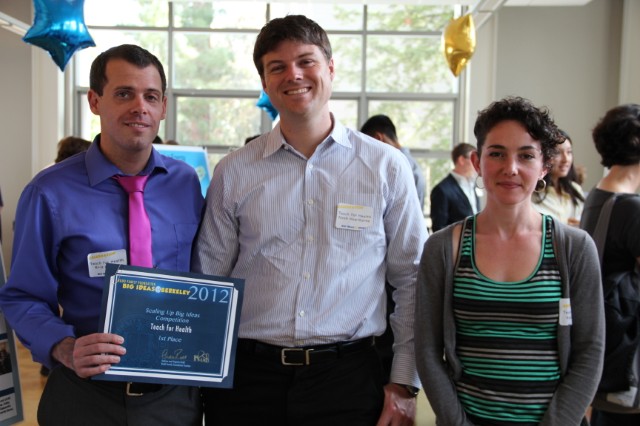
Photo Credit: Blum Center
Teach For Health, an NGO founded by UCSF and Berkeley students, won 1st place in the 2010 Global Poverty Alleviation category. The team proposed a model to catalyze cost-effective social change in rural, low-income villages in Nicaragua by training motivated community organizers, assisting local health promoters in Community Diagnosis and Action Planning (CDAP) and building local resource capacity. The team has expanded and strengthened the infrastructure, with 4 local staff, 69 active health promoters working in 21 communities conducting basic health-promotion activities and completing their own health-improvement projects. The team now plans to move to the next level of CDAP, which involves promoters facilitating a process in which their communities identify and prioritize their most pressing challenges, and develop and enact a plan to address specific challenges. To achieve this, the team will pilot the “Microgrant Empowerment Initiative”, providing a series of competitive, escalating grants with local matching for village-developed program proposals, in order to build local capacity for program planning and implementation, and lay the foundation for independent grant writing to implement community-driven projects.

